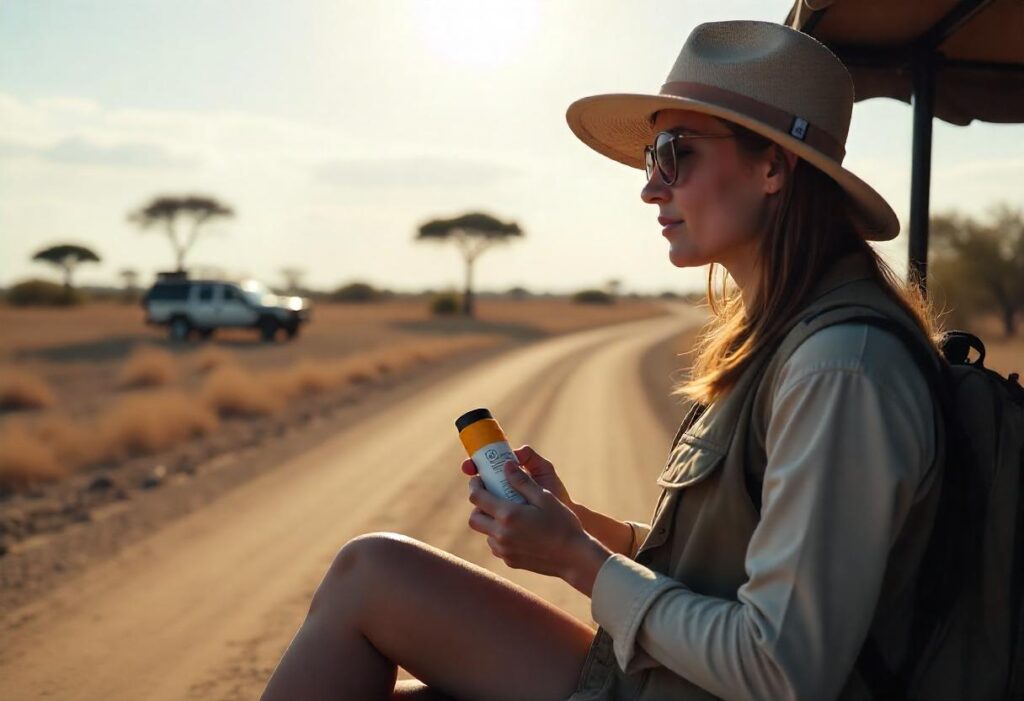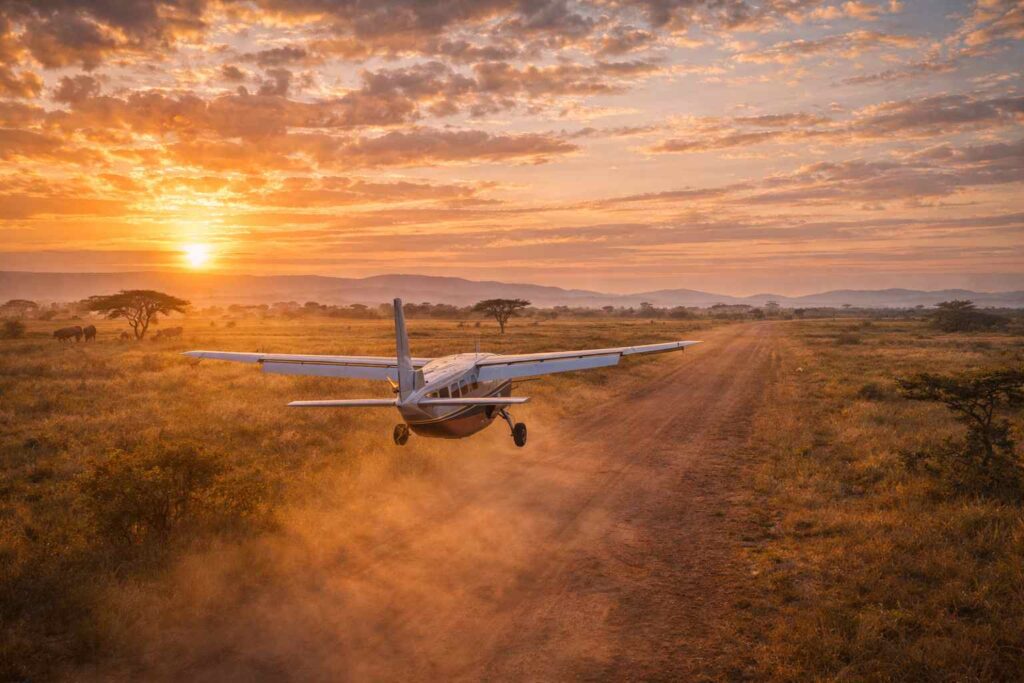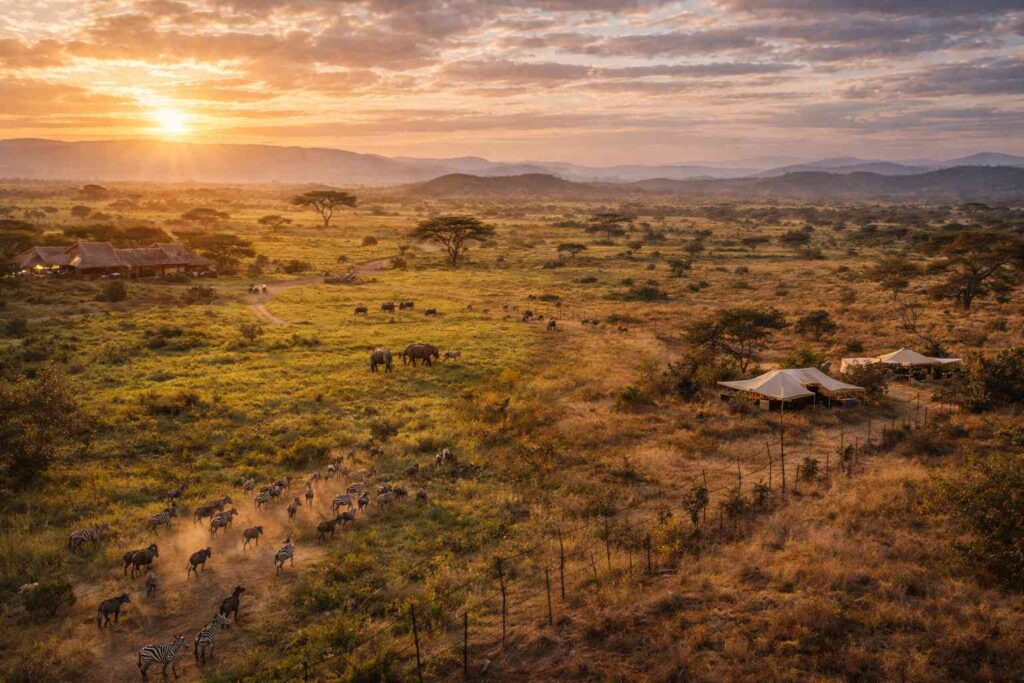Going on safari is one of the most thrilling travel experiences in the world—but staying safe and healthy is essential to make the most of your adventure. From wildlife encounters to health precautions, here’s everything you need to know before setting off into the African bush.
Safety on safari: What you need to know
Is going on safari safe?
Yes—safaris are generally very safe, especially when booked through reputable operators and lodges. Most destinations have strict safety protocols and experienced guides trained in both wildlife behavior and emergency response.
How guides keep you safe
- Trained professionals: Guides are experts in wildlife, terrain, and guest safety.
- Clear rules: You’ll be briefed on what to do—and not do—before each activity.
- Close communication: Lodges maintain constant radio or satellite contact for emergencies.
General safari safety tips
1. Always listen to your guide
Never leave the vehicle or trail without permission. Animals may look calm, but wild behavior is unpredictable.
2. Don’t walk alone at night
In unfenced camps, animals can pass through at night. Always request an escort and use a flashlight.
3. Keep a safe distance from wildlife
Even with a zoom lens or smartphone, stay in the vehicle and avoid sudden movements. Never attempt to feed or attract animals.
4. Secure your belongings
Don’t leave items like food or toiletries in tents—monkeys and baboons will investigate. Zip up everything before heading out.
Health on safari: How to stay well during your trip
Do I need vaccinations for safari?
Most safari countries require or recommend certain vaccinations. Check with a travel clinic 6–8 weeks before departure. Common ones include:
- Hepatitis A and B
- Typhoid
- Tetanus
- Yellow fever (mandatory for some countries)
Malaria: What to know
Many safari regions fall within malaria zones, especially in East and Southern Africa. To stay protected:
- Take anti-malarial medication as prescribed
- Use insect repellent with DEET
- Sleep under mosquito nets when available
- Wear long sleeves and pants after dark
Staying healthy while traveling
1. Hydrate often
African safaris can be hot and dry. Drink plenty of bottled water to avoid dehydration.
2. Eat safe, clean food
Lodges usually serve high-quality meals, but always avoid unpeeled fruit, uncooked foods, or tap water in remote areas.
3. Protect yourself from the sun
Wear sunscreen, a wide-brimmed hat, and sunglasses. UV levels can be intense, even on cloudy days.
4. Pack a personal medical kit
Bring basic first-aid items and your own medications. Include:
- Pain relievers
- Antidiarrheals
- Rehydration salts
- Motion sickness tablets
- Any prescription medications in original packaging
Additional travel tips for safari safety
Travel insurance is a must
Ensure your policy covers medical evacuation, trip cancellations, and adventure travel. Airlifts from remote areas can be costly without coverage.
Choose the right safari operator
Look for companies with:
- Excellent reviews
- 24/7 emergency support
- Professional guides with certifications
- Clear health and safety protocols
Be aware of travel advisories
Check your government’s travel advice for up-to-date safety and health information about your destination.
FAQs about safety and health on safari
Yes, but disclose your condition when booking. Many lodges can accommodate dietary or mobility needs, and some offer access to medical assistance.
Absolutely. Many solo travelers choose group tours for security and social connection. Lodges and guides are experienced in hosting solo guests.
They exist but are rarely seen. Stay on marked paths, wear closed shoes, and follow staff instructions.
Your guide will coordinate with camp staff to provide immediate help. Many camps have access to air evacuation services if needed.
Final thoughts
With a little preparation and awareness, staying safe and healthy on safari is simple. Respect nature, follow expert advice, and take common-sense precautions—then sit back and enjoy the adventure of a lifetime.






